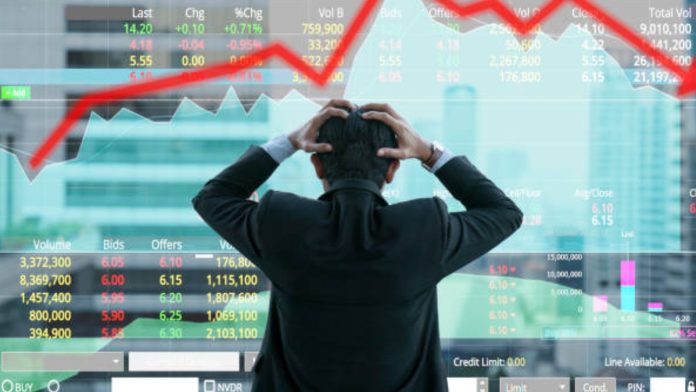After gaining over Rs 87 lakh crore in the first half of the financial year, stock market investors have seen their wealth erode by 43% or Rs 37 lakh crore in October – the worst in a single month.
Before this, the worst-ever monthly market cap loss was in March 2020, when the panic over the Covid pandemic saw investors lose as much as Rs 33.4 lakh crore.
The Sensex and the Nifty have fallen 5.8% and 6.3%, respectively, this month, while the broader market indices have seen a sharper cut of up to 9%. At the end of Friday, the market capitalisation of BSE-listed companies stood at Rs 437 lakh crore ($5.2 trillion).
The persistent selling saw the Sensex close below the 80,000-point mark for the first time in over two months. The 30-stock index fell 0.8% to 79,402.29 points on Friday, and the Nifty closed 0.9% lower at 24,180.80.
“The correction was overdue because the fundamentals are not supporting. The April-June earnings were mixed. Now, the September quarter has also not (been) great so far,” said Ambareesh Baliga, an independent market analyst.
Foreign portfolio investors (FPIs) have led the sell-off by dumping stocks worth $9.5 billion (Rs 79,363 crore) so far in October. On the other hand, domestic institutional investors (DIIs) have bought Rs 92,931 crore. Even on Friday, FPIs continued with their selling spree. They sold shares of Rs 3,036 crore, while DIIs were net buyers of Rs 4,159 crore, according to provisional data from the exchanges. This means that despite DIIs’ buying to the tune of almost Rs 1 lakh crore, the market has been falling consistently.
Elara Capital said that while the global fund flow into India has been coming down sharply, China saw fifth consecutive week of inflows, though at a slower pace.
The sell-off began late last month when FPIs started pulling money out of India and other emerging markets to increase exposure to China after it announced stimulus measures to revive its economy.
The sentiment took a further hit this month due to weak earnings performance by domestic companies for the September quarter.
Baliga pointed out that it was retail money that had been driving the market so far.
» Read More


